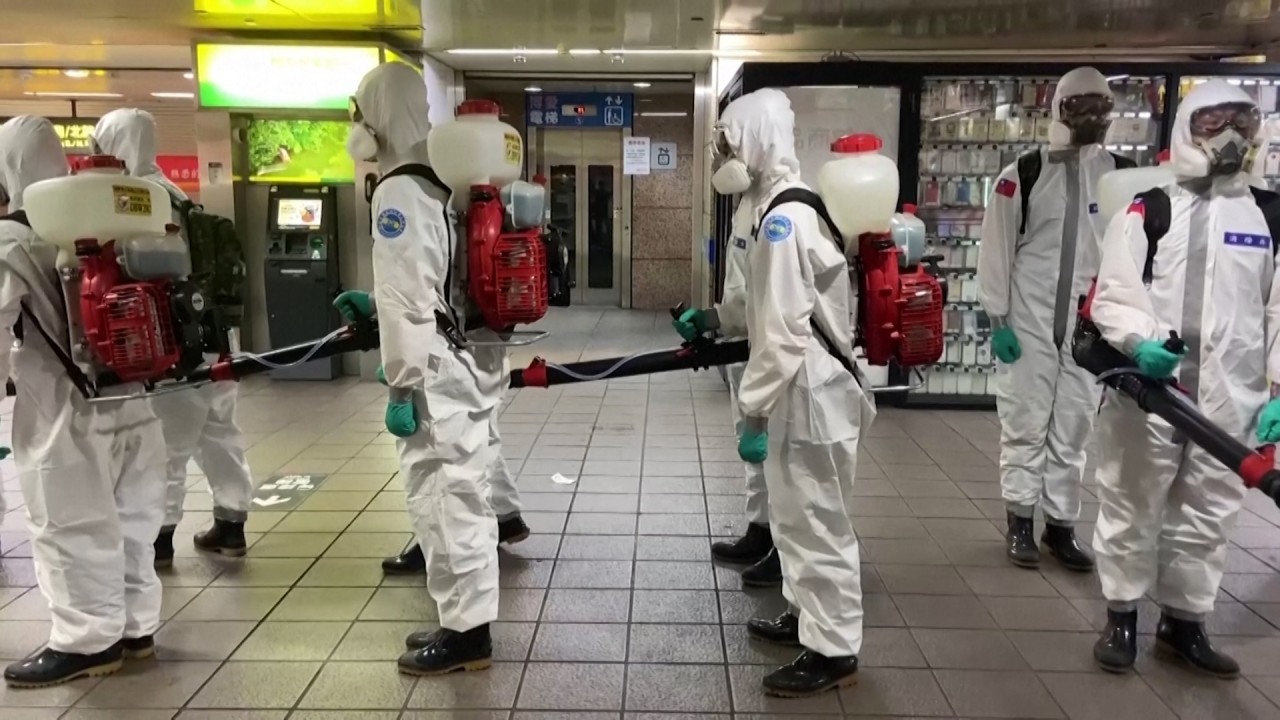
China renews Fosun BioNTech vaccine offer to coronavirus-hit Taiwan
- State news agency repeats earlier proposal to supply doses to the island
- Taiwan makes last-ditch effort to join World Health Assembly
Fosun signed a deal with BioNTech last year to supply mRNA Covid 19 vaccines to mainland China and offered in March to supply jabs to Taiwan.
However, Taiwan rejected the offer at the time, saying it would discuss with BioNTech directly about procuring doses.
Taiwan has one of the lowest numbers of Covid-19 infections in the world but has been battling a sudden increase in cases in recent weeks.
The island reported 723 new infections on Saturday – 321 new local cases, two new imported cases and 400 cases delayed by a reporting backlog last week – bringing the total number of cases on the island to 3,862.
Taiwan suggests mainland China pressured BioNTech to abandon Covid-19 vaccine deal
WHO director general Tedros Adhanom Ghebreyesus put the issue on the WHA’s supplementary agenda after 13 Taiwanese diplomatic allies – including Belize, Haiti and Honduras – said Taiwan’s inclusion as an observer was essential given its strong record in containing the coronavirus pandemic.
“By including willing and capable global health partners, such as Taiwan, the WHO and the entire world would benefit greatly in recovering together,” the supporters said.
“Once Taiwan had stabilised its containment of the virus and ensured people had sufficient access to medical resources it began to support countries in need by donating medical equipment and anti-pandemic supplies.”

02:38
Taiwan deploys military to disinfect subway station after Covid-19 cases surge
According to WHA procedures and a tentative agenda, the discussion of Taiwan’s attendance will be in the first half of the meeting on Monday alongside the adoption of the assembly’s agenda.
Taiwan’s foreign ministry said countries with diplomatic ties with the island would be invited to make their case.
The ministry also said Paraguay, Taiwan’s sole Latin American ally, wrote directly to Tedros to support Taiwan’s participation, according to local media reports.
Beijing responded on Friday by saying it would not agree to Taiwan’s participation and the decision was supported by 150 countries via diplomatic channels.
Chinese foreign ministry spokesman Zhao Lijian also said 80 countries wrote to the WHO in support of the one-China principle and against Taiwan’s involvement.
Coronavirus: Taiwan appeals to US for vaccines amid fears for elderly
The assembly’s procedures do not specify when the decision on a discussion will be made or whether – if permission were granted – Taiwan would be able to observe much of the week-long proceedings, which are being held by video conference.
In recent weeks, the United States, the European Union and Japan backed Taiwan’s bid to attend the assembly but to no avail.
The continued tensions between the two parties have also been the source of the talk of war in the Asia-Pacific region.

